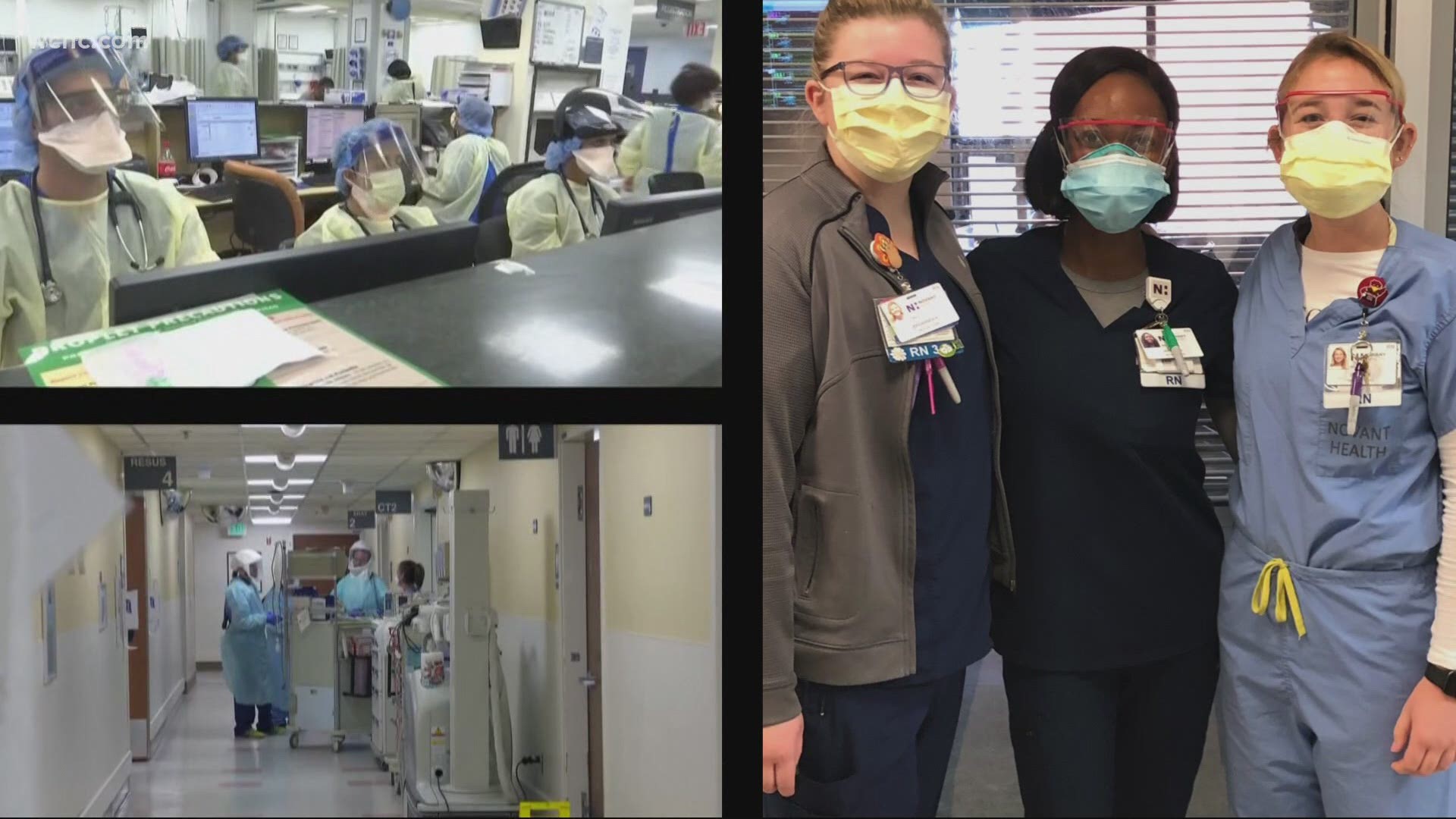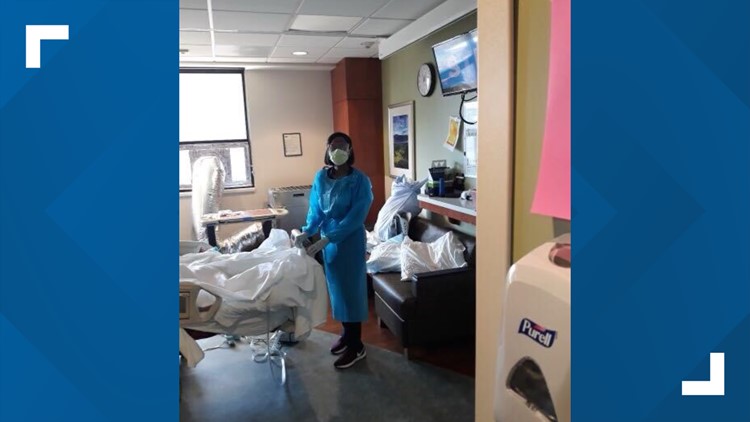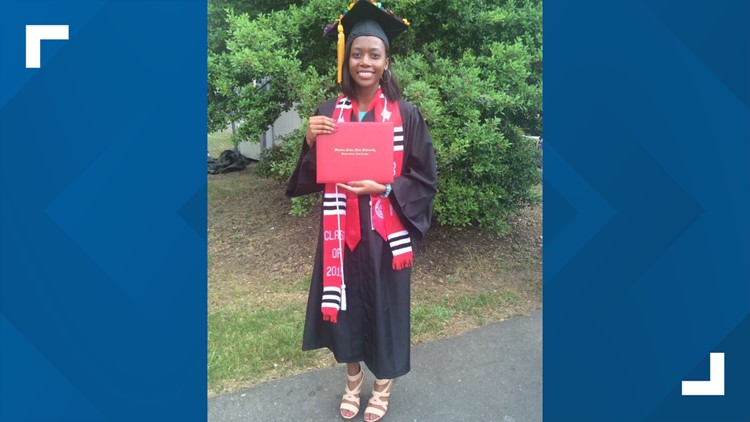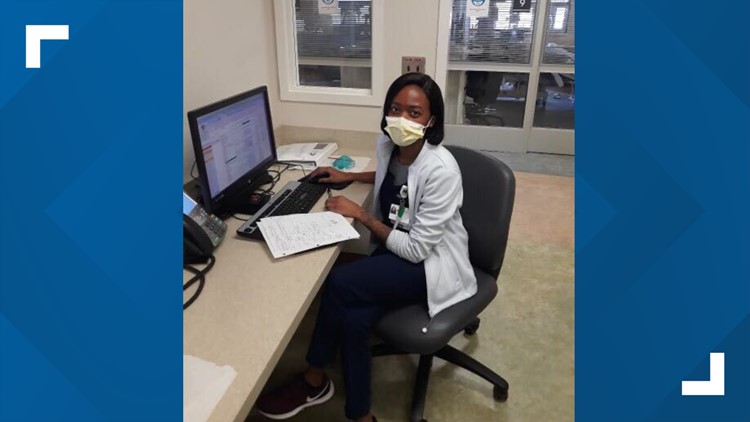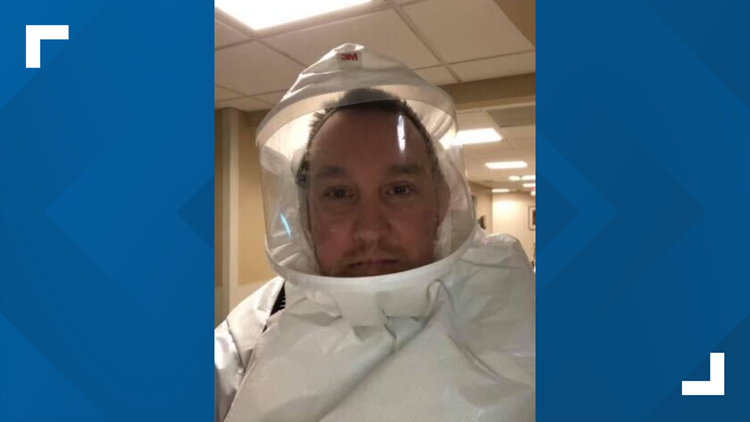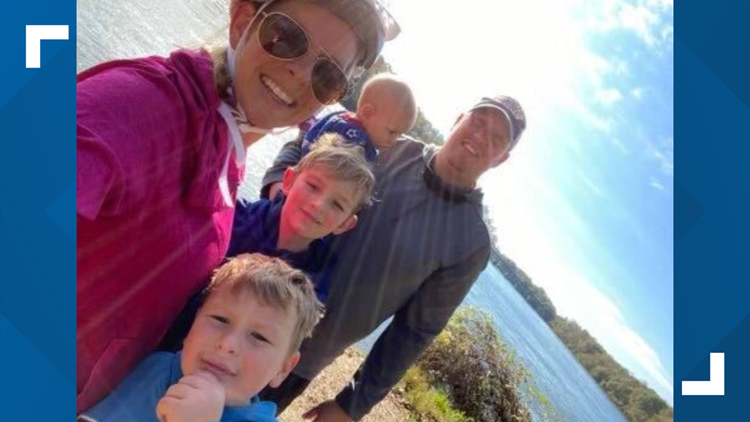CHARLOTTE, N.C. — Andrew Thom changed careers after he saw the way nurses cared for his son in the NICU. Jasmine Adams became a nurse because she wanted to help people. Now, both of them are working on the front lines in the fight against Coronavirus in the intensive care unit.
“Our patients are generally the sickest of the sickest in the hospital,” Adams said from an office inside Novant Health Presbyterian Medical Center in Uptown Charlotte. “We get attached to patients and they almost become like family.”
Adams said she’s lost more makeshift family members than she can count as COVID-19 leaves fewer and fewer hospital beds free.
“It doesn’t seem like there’s an end in the near future,” she said. “In fact, it’s getting kinda worse again.”
Adams said initially, she and her colleagues expected the most serious cases to be in seniors and people with significant health issues. She has now seen people who are young and old, healthy and ill, stricken seriously or losing their lives to the virus.
Adams is the one holding COVID-19 patients’ hands as they die; the one calling their families.
“We’ve had to facilitate Zoom or FaceTime calls so that goodbyes could be said,” she said. “Sometimes we carry things home with us- faces, memories, family members.”
Adams said he has even seen people from the same family fighting for their lives on the same hospital floor.
“I’ve held hands of patients who have lost family members in the same way,” Adams said. “And it’s not even that they couldn’t be there, it’s that they’re not alive any longer as well.”
Thom said he still remembers the first patient who came in with COVID-19 symptoms.
“We treated this person as if they were gonna be positive and they weren’t. So we’re like, ‘Ok we dodged that bullet,’ and then I came in a few days later and there were six positive cases and it just snowballed from there," he said.
Charlotte nurses treating 'sickest of the sick' now worry there's no end in sight to COVID-19
Thom and his wife are raising three children. During the beginning of the pandemic, it wasn’t easy, he said.
“We’ve had some tough conversations,” he said.
Thom’s wife is a teacher, so she has had her own concerns about potential exposure to the virus. Thom has been working weekends so he can help with homeschooling their kids during the week.
He said it’s been hard on them.
“They always come in and give me a big hug and now it’s become a high foot until I’ve decontaminated,” Thom said.
Several years ago, Thom and his wife had another son named Caelen who spent much of his short life in the ICU. Caelen died at 8 months old. Thom said he watched the way the nurses cared for his son and realized that was his calling.
He traded his life in sales, for one in scrubs.
Now, he is able to help other families the way the nursing staff helped him.
“Just go in every day and know that you’re the only one there that’s there for them,” he said. "And so you do everything you can as if it’s your parent or brother or loved one.”
Thom said he often hears from people who doubt the seriousness of the virus. He said that may have been the case for what some people experience, but not him.
“The sample set that I see are the sickest. And it is a horrible disease process I would never wish it upon anyone,” Thom said. “I honestly wish we could get more cameras in to see people paralyzed, intubated, chest tubes, dialysis, all these measures that it takes to keep them alive. And yeah it’s a very small percentage of the positive COVID cases but they are out there.”
Both Thom and Adams said their experience with the virus has given them a new perspective in life.
Thom has come to treasure family game nights at home and spending time around the fire pit in the backyard.
For Adams, she is reminded of the fragility of life.
“I don’t take anything for granted,” she said.
And while she is grateful for her health, as she looks at the rising case counts in our community, she remains concerned about others.
“It makes me nervous,” said Adams, who plans to have what she described as a “lonely” Thanksgiving and holiday season. “It’s better safe than sorry. You wouldn’t want to turn a joyous holiday into something you regret for the rest of your life because people got sick.”

